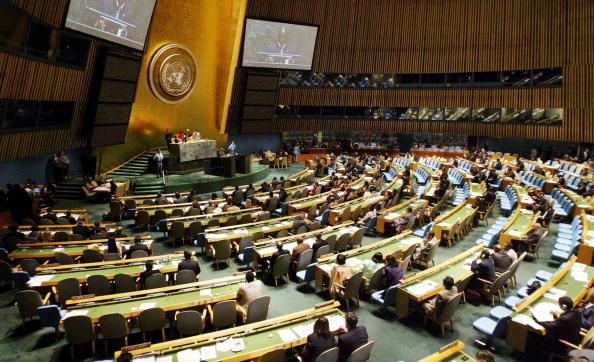Olympics to present resolution to UN on global conflict ceasefire

The Olympic Games will next Tuesday table a symbolic resolution, the Olympic Truce, to the United Nations (UN) in the hope of stopping conflicts around the world during Paris 2024.
The Olympics heads to Europe next year, a continent home to a major conflict between Russia and Ukraine and not too far away from the ongoing situation between Israel and Hamas on the coast of the Mediterranean.
Since 1993 the International Olympic Committee has tabled a motion to the UN which calls for a global truce on conflict from a week before the Summer Games, concluding a week after the Paralympic Games.
It is uncertain at the moment as to whether Russians and Belarusian’s will be allowed to compete under their flags but World Athletics have ended the blanket ban on Russians as a result of their recent doping scandal.
In its modern enactment, the treaty has been broken three times. All three breaches were committed by the Russian Federation – their invasion of Ukraine in 2022 was the most recent breach ahead of the Winter Olympic Games.
So what is the Olympic Truce?
“The tradition of the “Olympic Truce”, or “Ekecheiria”, was established in Ancient Greece in the ninth century BC through the signing of a treaty between three kings to allow safe participation in the ancient Olympic Games,” the Olympics state.
“Taking into account the new political reality in which sport and the Olympic Games exist, the IOC decided to revive the concept of the Olympic Truce for the Olympic Games, with a view to protecting, as far as possible, the interests of the athletes and sport in general, and to harness the power of sport to promote peace, dialogue and reconciliation more broadly.”
When will the UN truce be tabled?
The Olympic Truce draft resolution will be introduced to the United Nations (UN) General Assembly in New York on Tuesday 21 November, at 10:00 Eastern Time (EST).
Paris 2024 President Tony Estanguet will introduce the resolution with a speech, followed by discussions by the Member States.
There is no formal vote on whether the motion should be adopted.